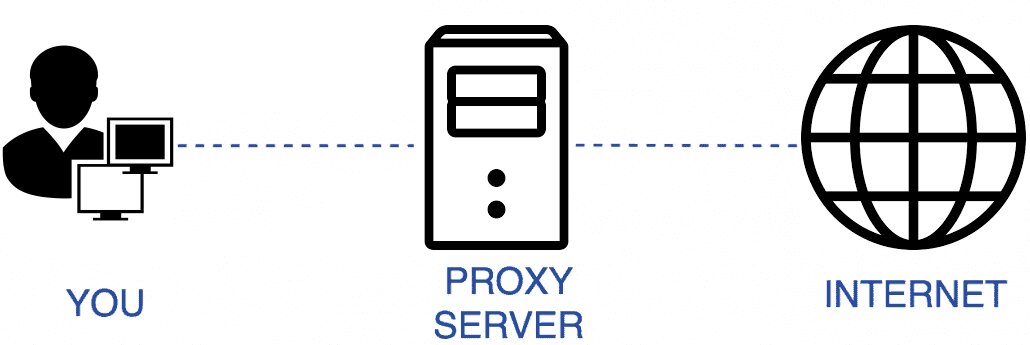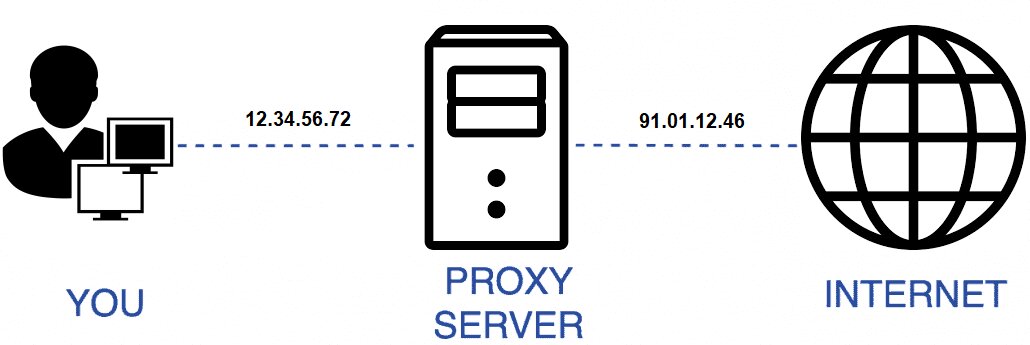All You Need to Know About Proxy Servers
Have you heard the phrase “proxy server” but don’t know what it means? Nearly every day, folks use proxy servers to raise their privacy while browsing the internet significantly. But what exactly is a proxy server? Also, how do people use it when surfing the web?
A proxy server is a server that acts as an intermediary for requests from clients seeking resources from other servers. When a device requests to access some resource (for example, a website), it is processed by the proxy server first. The proxy server evaluates the request based on its settings and protocols and then fulfils it by connecting to the relevant server.
Table of Content
Best-suited Cyber Security courses for you
Learn Cyber Security with these high-rated online courses
What is a proxy server?
Every computer connected to the network has an IP address that uniquely identifies the device. However, there are times when we need to access restricted websites/servers and do not want to reveal our IP address. In such a case, the proxy comes into play.
You can also explore – What Is An IP Address?
A proxy server is a server that acts as an intermediary between client requests and a specific server for particular services or requests for certain resources. When you use your browser to browse the internet, you usually connect directly to the website you’re visiting. Proxy servers act as go-betweens for you and the websites you want to visit.
You can also explore- What is Safe Browsing & How to Turn It On?
Types of Proxy Servers
Even though each proxy server provides users an alternate address, there are various types of proxy servers, such as:
Reverse proxy server: A reverse proxy server typically sits behind a private network’s firewall and routes client data to a specific backend server. The server adds an extra abstraction layer and control to ensure network traffic flows smoothly between clients and servers.
High anonymity proxy server: This proxy server does not allow the original IP address to be detected, and no one can identify it as a proxy server.
Rotating proxy server: This proxy server assigns a different IP address to each user who connects to it. Users are assigned an address that is distinct from the device that is connected before them.
Transparent proxy server: This proxy server is also known as an inline proxy, intercepting proxy, or forced proxy. This proxy server is a middleman between an end-user or device and the internet. It is called “transparent” because it does so without altering requests or responses.
SSL proxy server: An SSL proxy server provides encryption between the client and the server. The proxy conceals its existence from both the client and the server because the data is encrypted in both directions.
Web proxy server: A web proxy server acts as a bridge between a client application, a browser, and the actual server. It sends requests to the real server on the client’s behalf and sometimes fulfils the claim. This type of proxy server forwards the HTTP requests.
Suffix proxy server: This proxy server adds the proxy’s name to the URL of the content requested by the proxy. You can use this type of server to avoid web filters.
DNS proxy server: Unlike other proxies, this proxy server accepts DNS queries and forwards them to the Domain server.
Anonymous proxy server: Users can use this proxy server to hide their network traffic’s emergence so they are not identified. Proxies allow users to access internet services while concealing key details, such as the computer’s IP address.
How Do Proxy Servers Work?
A user typically connects to a website by sending a direct request to its web server via their IP address from a web browser. The web server returns to the user with a response containing the website data. A proxy acts as a go-between for the user and the web server. Proxy servers use a different IP address on the user’s behalf, hiding the user’s true IP address from web servers.
You will have a much better understanding of how a proxy server works with the help of these steps:
- A user types the URL of a website into their browser.
- The proxy server receives the user’s request.
- The request is forwarded to the web server by the proxy server.
- The web server returns to the proxy server with website data.
- The response is forwarded to the user by the proxy server.
Advantages of Using Proxy Servers
So, what is the point of using an HTTP proxy or any other proxy type? There are numerous reasons for doing so, including:
Control: There’s a lot of crazy stuff on the internet. A content filtering proxy can help if you’re a parent looking to protect your young children from some of it.
Privacy: Anonymous and high anonymity proxies hide your IP address from the websites you visit. If you don’t want sites to recognize where your traffic is coming from, one of these proxy types might be for you.
Access restricted content: Any proxy that changes your IP address can do so in such a way that it shifts your geographical location online, potentially allowing you to circumvent content restrictions.
Faster loading: Caching your favourite websites on an internet proxy will load faster the next time you visit them.
Cheaper: Numerous web proxies are free, though we cannot guarantee their security or performance. However, if you only require the aforementioned benefits on occasion, a free web proxy may suffice.
You can also explore- What are the Different Types of Firewalls?
Disadvantages of Using Proxy Servers
Using a proxy exposes you to a variety of cyber risks, including:
Data logging: Proxy servers log users’ IP addresses and the data from their web requests. Depending on the service, several proxies will not encode this data and may sell it to third parties.
Open ports: An open port increases security risks by increasing an organization’s total number of attack vectors.
Privacy concerns: Free proxies frequently operate on insecure channels and rely on ad-based revenue models. Anyone can listen to user traffic; these ads may contain viruses and other malware.
You can also explore- What is Adware & How do I Get rid of it?
Inconsistent speed: Servers frequently lack the bandwidth required to serve millions of users in one go at constant speeds and thus are vulnerable to lagging.



Proxy Servers vs. VPN
For better clarity and understanding, let’s view the differences between these two in the form of a table:
| Benchmark | Proxy Server | VPN |
| Encrypts the data | No | Yes |
| It has its software | No | Yes |
| Use of Cache | Yes | No |
| The proxy owner can see the IP address | Yes | No |
| Security | Less secure | Highly secure |
| Pricing | Almost free | Chargeable |
You can also explore – What is a Virtual Private Network (VPN)?
Conclusion
This article covered proxy servers in great depth, including various topics, such as how they work, their different types, advantages and disadvantages, and so on. Using a proxy when browsing is preferable because it reduces the cyber risk associated with regular browsing. So, rather than being sorry for not using one, use one!
FAQs
What are the primary functions of a proxy server?
The primary function of a proxy server is to speed up common requests and share network connections, and cache data.
What are the various kinds of proxy servers?
Proxies are classified into variousu00a0types, such asu00a0forward proxies,u00a0reverse proxies, web server proxies, SSL proxies, etc.
Why is a proxy server required?
Proxy servers are required because they add an extra layer of security to your computer and can be configured as web filters or firewalls, protecting your computer from internet threats such as malware.
Is a VPN a proxy server?
VPNs are similar to proxies, except that instead of working with just one app or website, they work with all of them.

Anshuman Singh is an accomplished content writer with over three years of experience specializing in cybersecurity, cloud computing, networking, and software testing. Known for his clear, concise, and informative wr... Read Full Bio




